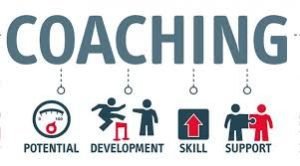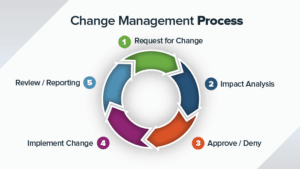When you inspire success, you are a leader who makes a difference and leaves a mark on the world. A strong leader can hold a team together, and on a larger scale, an inspiring leader can even hold an entire organization together.
An organization’s main goal should always be: Having effective leaders who can inspire by setting goals and guide others to achieve success. Leadership development training can help managers, leaders or managers, and middle management. The strongest factors that all leaders need for successful leadership are influence, communication, self-awareness, ability to learn constantly, being resilient, and strategic thinking.
Strong leaders are always on a hunt to find unique and innovative methods to bring together and engage people, resulting in a team that is ready to accept challenges.
Even though there are several leadership programs, not many are as helpful as they aim to be. To design an effective leadership development program, the leaders should be equipped with superior skills, behavior, and tools that they should be able to use confidently to help the team grow and develop, driving the overall performance of the organization.
What should a Leadership Development Training focus on?
Here are five key skills that are needed by every leader of the present and the future.
Communication
Learning to communicate effectively is the pinnacle of a leader’s career. A manager may be highly skilled in a software program, but without communication, he will not be able to inspire his team to grow.

Watching videos, reading, or going through a presentation on communication skills may be helpful to learn communication skills, but not necessarily develop them. Communication at work happens every second, from text messages, emails, phone calls, to creating and delivering presentations.
The most interesting fact about communication is that it is not a new skill and leaders should find ways to optimize their communication skills to stand out from the rest.
Coaching
A true leader inspires his subordinates to push forward and unleash their potential. Every moment can be a coaching moment. Leaders should be able to recognize those moments and value those moments as learning experiences.

The leaders should be able to encourage development, enhance productivity, and motivate and guide responsibly. The ability to be reliable and at the same time, pushing the team to do better is an art that can be mastered with practice and implementation.
Accountability
Leaders who achieve success easily are already aware that their success is not just due to their own but also their team’s performance. Leaders are not individual contributors so, to boost their own productivity and development, leaders need to do the same for their team and organization.
 This means that leaders should be accountable and hold the responsibility of their team’s outcomes, whether win or lose. A leader inspires the team to move towards success together rather than doing it alone.
This means that leaders should be accountable and hold the responsibility of their team’s outcomes, whether win or lose. A leader inspires the team to move towards success together rather than doing it alone.
This, ultimately, reflects on the leader’s capabilities to hold on to their commitments and ability to produce the results as expected.
Influence and Negotiation
Good leaders get the job done on time. Great leaders get the job done while inspiring their teams. Exceptional leaders inspire, boost productivity, and encourage everyone to succeed. They do not command with authority but persuade subtly.
 Effective leaders are strong influences and negotiators, who can readily accept that it is not about their power to dominate, but the power to influence and negotiate that matters more to achieve results.
Effective leaders are strong influences and negotiators, who can readily accept that it is not about their power to dominate, but the power to influence and negotiate that matters more to achieve results.
The art of influencing and negotiation involves a subtle way of building relationships, prioritizing, and finding every opportunity to bring about methods to achieve goals and deliver the desired results.
Change Management
No organization stays the same over some time. It starts with a goal - a mission and a vision - and to achieve it, it goes through tremendous change and development on its way. It is not an easy path, but achievable. The success of an organization is not solely on its founders but the entire line of individuals that follow. From the individual contributors, group of teams, to managers and middle management and upper management, everyone has a role to play.
 It is normal to experience challenges during changes. It is during this time that the leaders should be able to instill confidence in their employees to stay calm through the storm and make them believe that changes are a part of growth and should be considered as lessons.
It is normal to experience challenges during changes. It is during this time that the leaders should be able to instill confidence in their employees to stay calm through the storm and make them believe that changes are a part of growth and should be considered as lessons.
Change management should be essential for effective leadership development training, where the present and future leaders learn to work towards achieving the vision, develop strong leadership skills on the way, and be ready to challenge themselves during change and deliver excellent performance.
The most effective approach to leadership development training is to find a balance between what caused leaders to fail and what calls for a desire to be an excellent leader. The factors to consider for designing the training should include organization-specific challenges, the current and future goals, and inputs from the current and past leaders for training future leaders.
Excellent leadership helps bridge the gap between the front line and the top management and gives them the ability to work together. The development of leadership qualities also helps leaders to learn how to collaborate and solve complicated issues, and take wise decisions in a constantly changing environment.
Leadership development training can help manage stress, develop the ability to manage multiple roles while leading across the organizational or geographical boundaries, and also build a network of leaders, across the globe, who are supportive and helpful in the continuous development of the organization. It begins by taking responsibility for own tasks and finishing them on priority.
Every leadership training program should aim to provide post-training feedback which helps the leaders assess their skills, change their behaviors related to their influencing and negotiating skills, communicate better, work towards more self-awareness for continuous development.
Feel free to visit for more information: https://www.linkedin.com/showcase/4821209/admin









